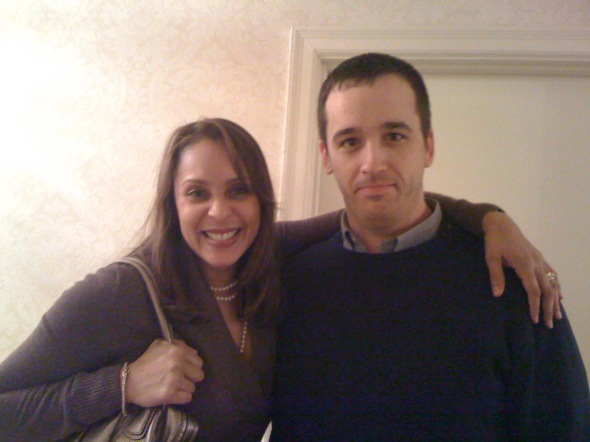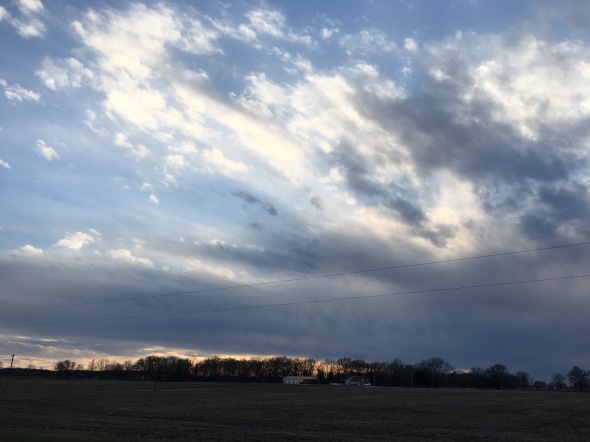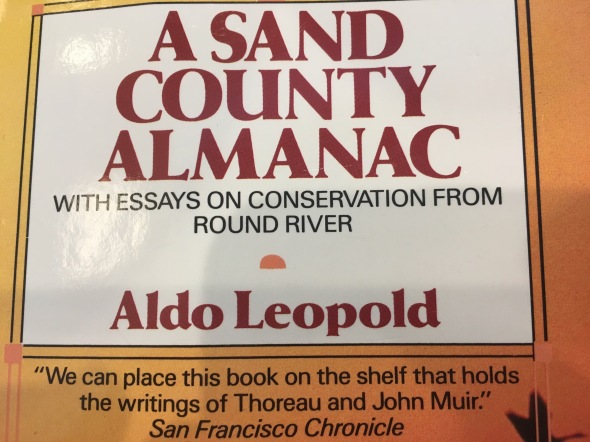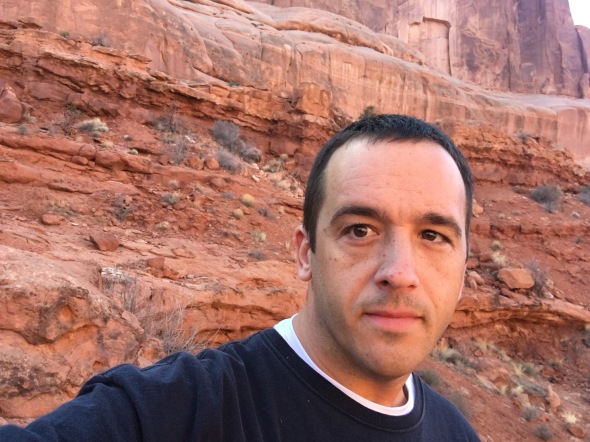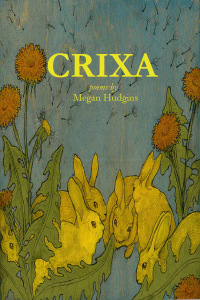Part One: Beats as Dirtbags
When I first read the Beats I was drawn to the centrifugal force of the writers themselves, their nonstop train hopping, tea smoking, apple pie eating, and stream of consciousness talk.
The books and writing they did were almost secondary in terms of why I was drawn to them. The world Jack Kerouac described in On the Road, while exotic to a kid in southern Illinois, was one I could approximate on a Saturday night. I couldn’t do that with Herman Melville’s Moby Dick. You can’t find a good harpoon in the bi state area. This is the naiveté of trying to live out the literature. But, I was a college freshman after all.
The Beats were clearly on our minds when one summer two friends and I took off from St. Louis to New York and all the way up into Canada. We didn’t even need passports back then. We had little money, and mostly slept in tents or the car. The next summer even more of us took off in a old Buick for San Francisco. We stopped in front of City Lights Books for this photo taken by Parker Schmitt.
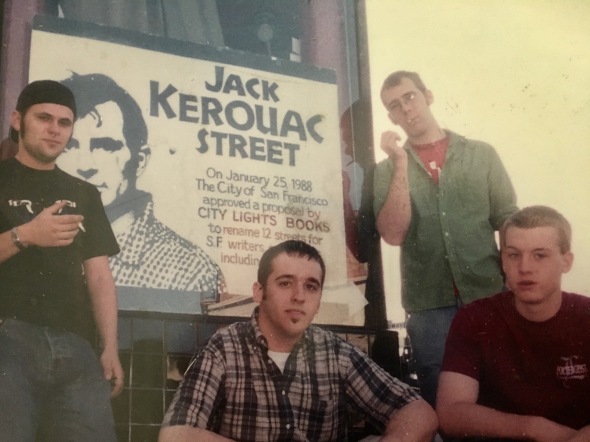
Much of what I learned from the Beats I have since cast aside. For years I called myself a writer and wrote very little. I spent most of my time talking about writing, or drinking. I read a lot of books. I wore a lot of black clothes. It was the pose of a writer that I learned from that iconic cover and the text itself of On the Road. The photo of Neal Cassady on the left and Kerouac on the right was taken by Carolyn Cassady. Somehow the myth that artists and writers can get away with being lousy human beings is all wrapped up with the Beats in my mind. But maybe their greatest legacy is about being a different kind of dirtbag.
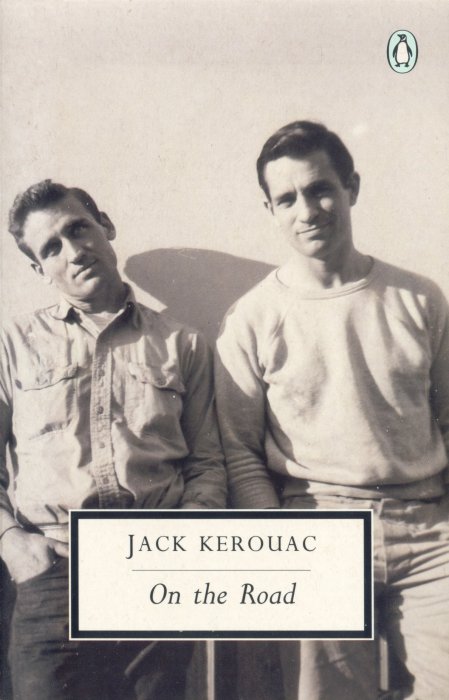
I’m no monk. But I have written three pages or more everyday for more than ten years now. I can notice now that there’s nothing so compelling in Neal Cassidy’s stories about being married to one woman on the east coast and another on the west coast. Or at least there’s nothing more compelling in this than what you would find on any daytime TV show. This is not all the Beats fault. If I didn’t learn it from them, I could have learned it from Charles Baudelaire or Jackson Pollack.
However, the Beats were right about some things. There is a nuanced understanding of past-present tense issues, and other improvisational things to be learned from the writing, the sentences, and the lines themselves. There’s more going on there than meets the eye. They were also right about jazz and Buddhism.
The Beats were, according to some literary critics, the first literary movement to name themselves. This was a genius move. And as William Burroughs said: “Kerouac opened a million coffee bars and sold a million pairs of Levis to both sexes. Woodstock rises from his pages.” The hipster aesthetic they created is still being used today. They weren’t selling books. They were selling a lifestyle.
Most of all, the Beats were right about getting outside, going on the road, and working whatever job it takes to get there. In the community of outdoor enthusiast (hikers, mountaineers, snowboarders, and so on) the word dirtbag is a term of endearment. A dirtbag is a person who owns little, works just enough to have the gear, and nourishment to get to the next adventure.
Kerouac calls them “rucksack wanderers” in The Dharma Bums. He may have been thinking about various wandering monks from Japan when he wrote that. But this is as good a definition of dirtbag as I’ve seen anywhere, and it comes from Dharma Bums:
“See the whole thing is a world full of rucksack wanderers, Dharma Bums refusing to subscribe to the general demand that they consume production and therefore have to work for the privilege of consuming, all that crap they didn’t really want anyway such as refrigerators, TV sets, cars, and general junk you finally always see a week later in the garbage anyway, all of them imprisoned in a system of work, produce, consume, work, produce, consume, I see a vision of a great rucksack revolution thousands or even millions of young Americans wandering around with rucksacks, going up to mountains to pray, making children laugh and old men glad, making young girls happy and old girls happier, all of ’em Zen Lunatics who go about writing poems that happen to appear in their heads for no reason and also by being kind and also by strange unexpected acts keep giving visions of eternal freedom to everybody and to all living creatures.”
#optoutside


